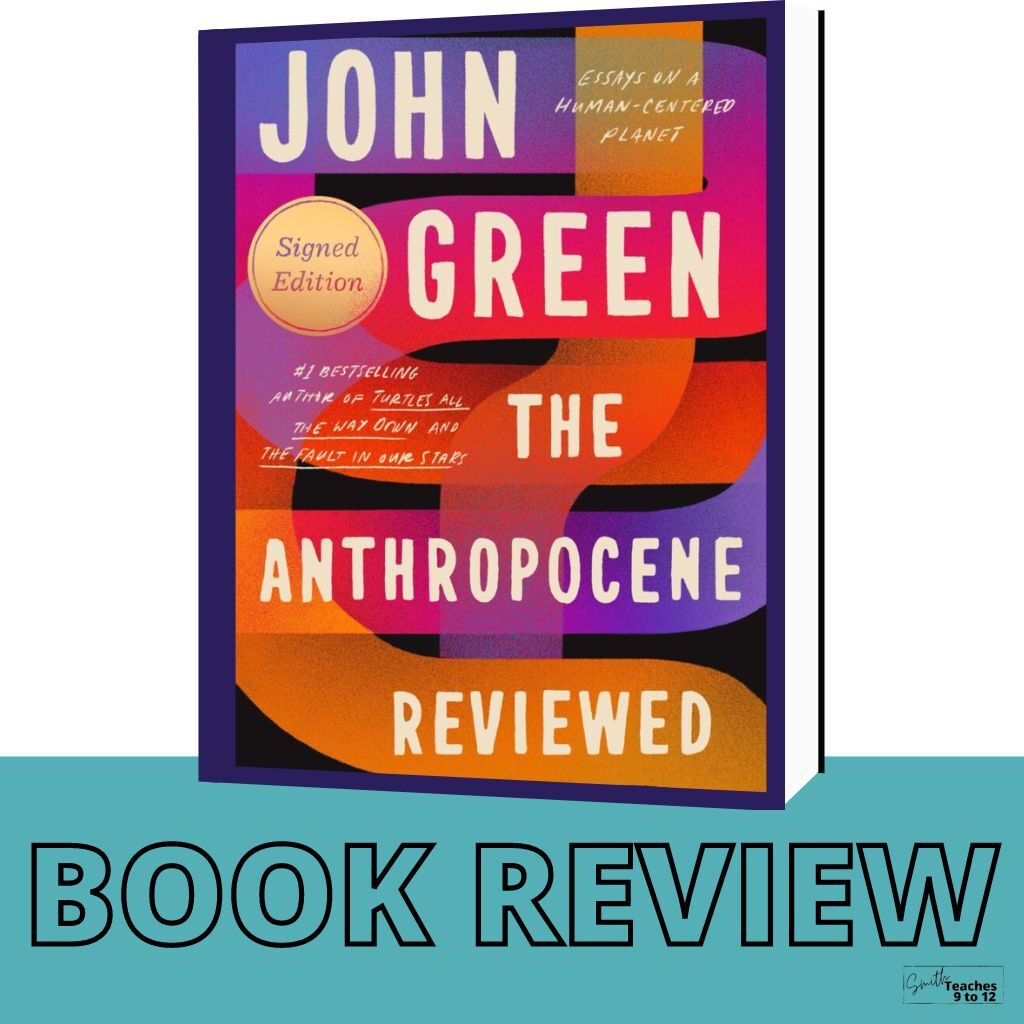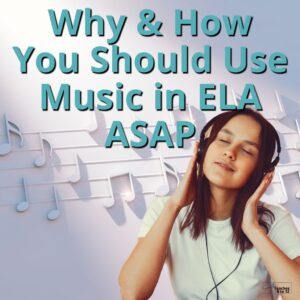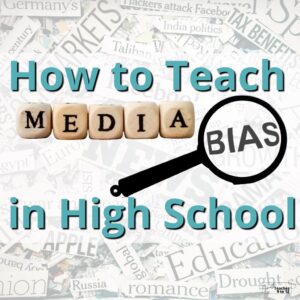Sharing is caring!
NERD ALERT!
If you love trivial details that make your brain explode then these John Green essays might be for you! Plus there are so many ways to use John Green’s essays in a high school English classroom. In particular the essays would make for great mentor texts for personal narrative writing in an ELA classroom.
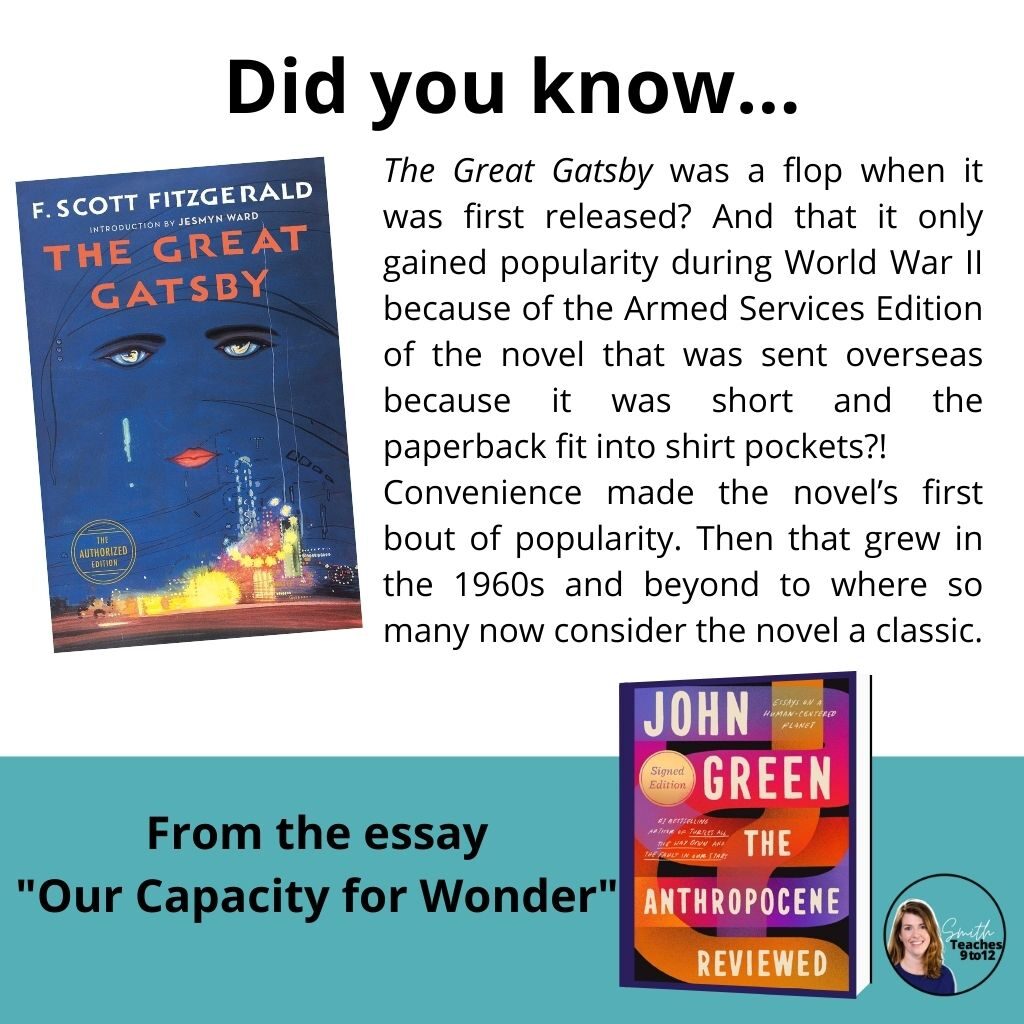
Overview
John Green’s latest book The Anthropocene Reviewed is based on his podcast all about the Anthropocene – aka the current time in the planet’s history. Moving away from the fiction you may know him for – The Fault in Our Stars or Turtles All The Way Down – this book includes 44 short, pithy essays. He reviews elements of our world such as Diet Dr Pepper, Canada geese, cave paintings at Lascaux, air conditioning, and so much more offering one to five stars for each item reviewed. And while there is some absurdity to the reviews – perhaps a lack of actual criteria for judgment – as I read through them lounging on my balcony I envisioned all sorts of ways to fit them into my classroom.
How I will use John Green essays in the classroom
Here are four John Green essays that will be making their way into my classroom next year.
“Harvey”
This very personal essay is a strong example of writing one’s experience. Green writes of his severe depression and uses the film Harvey with Jimmy Stewart as both a motif and a touchstone throughout the essay. It is also an honest explanation of mental health, support systems, and coping mechanisms.
I will be using this essay in the first unit of grade 12 English where we explore personal essays and students write their own. (I also plan to use a section from Eternity Martis’ They Said This Would Be Fun and you can read about that here.)
“Googling Strangers”
This essay focuses on how Green uses Google to search online for details about people. The essay culminates with a poignant story about an incident in a hospital ER when Green was doing a chaplain residency and then years later the Google search that eased his mind of that particular event.
I might use it in my grade 9 class when we do more focused lessons on media studies. The opening of the essay about the details which can be discovered online would open up great discussion. At which point is online information too much or too invasive? Is there a need for info to be controlled or to be reduced in terms of our sharing?
“Earth is around 4.5 billion years old, a timescale I simply cannot get my head around. Instead, let’s imagine Earth’s history as a calendar year, with the formation of Earth being January 1, and today being December 31 at 11:59 pm” concluding a few sentences later with “Homo sapiens aren’t part of the story until December 31 at 11:48 PM”.
“Humanity’s Temporal Range”
This essay focuses on the history of our planet and more specifically putting humanity’s time on our planet into context. At one point in the essay to explain the full timeline he writes “Earth is around 4.5 billion years old, a timescale I simply cannot get my head around. Instead, let’s imagine Earth’s history as a calendar year, with the formation of Earth being January 1, and today being December 31 at 11:59 pm” concluding a few sentences later with “Homo sapiens aren’t part of the story until December 31 at 11:48 PM”.
This examination of the effects of our existence will work well in an ELA class but will work even better for me for a new course I’m teaching about social justice and equity. It makes clear the ability of humans to have a positive and negative impact on the world and this will be an integral part of the course that blends theory and practice.
“Monopoly”
This essay focusing on the ‘real’ history of the board game and the misattribution of its invention to Charles Darrow. The essay is a good examination of intellectual property and ownership and about revisionist history (that opens up even wider discussion points).
This will be a good complement to the different literary theories we study in grade 12 English. The essay focuses on aspects that will work with feminist theory, Marxist theory, and New Historicism. The other John Green essays in the collection included in this post will also work with different theories, plus there are others in the book that can work!
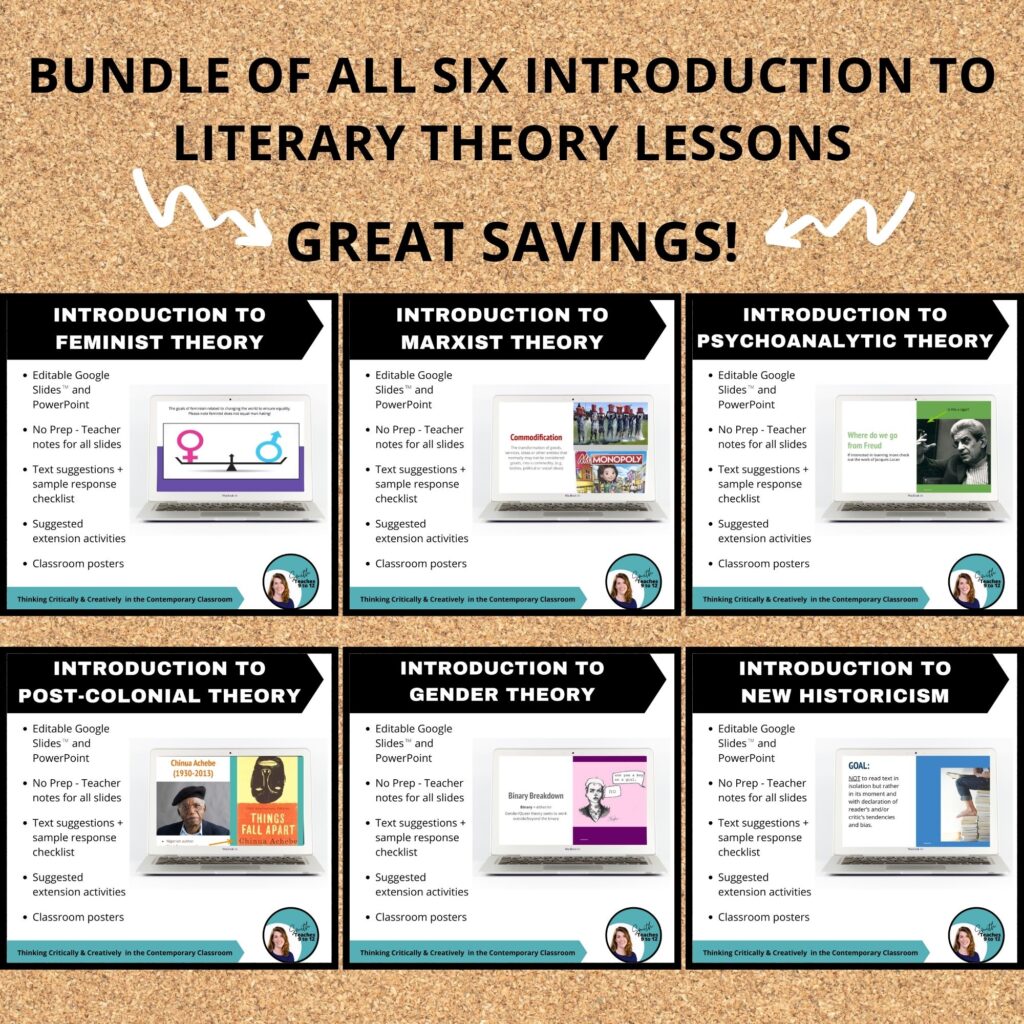
For ready-made lessons to introduce these theories and others check these out.
I give this book 4.5 out of 5 stars based on my own random criteria!
Read more about these John Green essays on the author’s website.
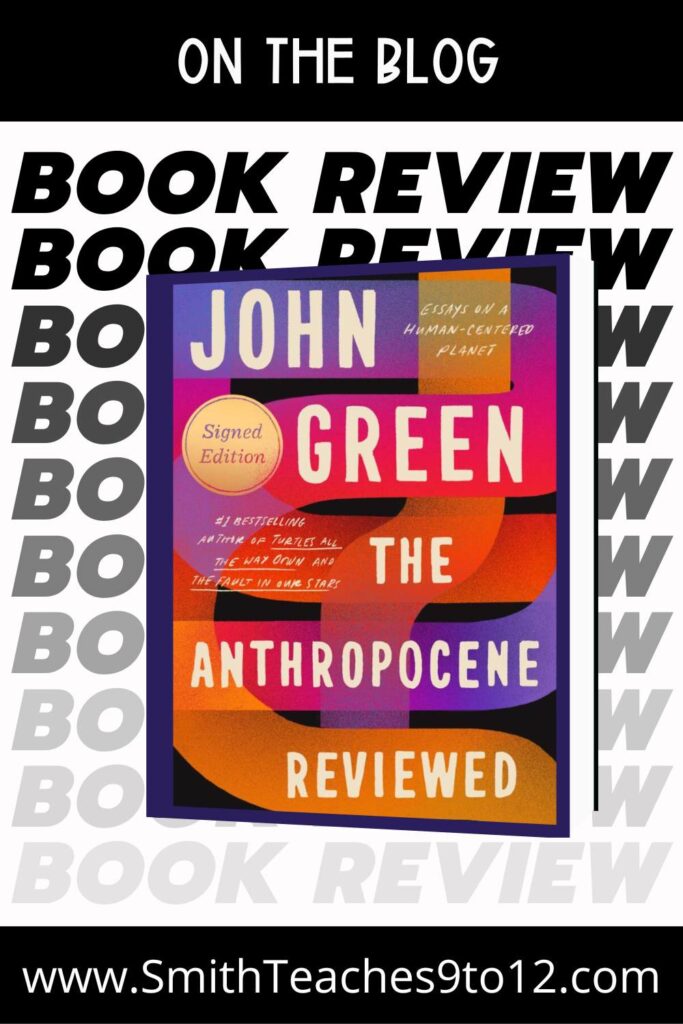

Related posts:

